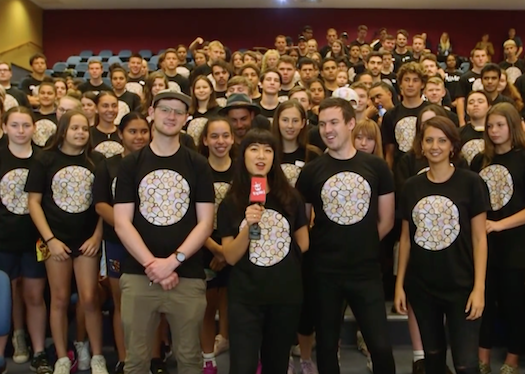Radio Tomorrow with James Cridland
Young people are falling out of love with radio.
How do you know? You just have to ask a random guy you meet at the pub. He’ll tell you that his friend’s son doesn’t listen to the radio, and, by extrapolation, no young people in the entire world listen to the radio. You can take this knowledge back to your workplace and comfortably tell other people that young people don’t listen to the radio.
(Never mind that advertising agencies already aren’t interested in the 50+ population. Who wants people who are settled, comparatively rich now that their kids have left home, and for whom a low price is less important than a quality product? No ad agency finds those people attractive, so the oldies stations are reduced to running ads for pain relief, retirement homes and funeral plans.)
We’re now telling anyone who’ll listen that “young people don’t listen to the radio”. It’s almost entirely accepted as the truth of radio listening. Before long, we’ll be programming every radio station for a thirty-something “young at heart” housewife. Turn up the feel good, she wants more variety and songs you can sing along to. Because young people don’t listen to the radio any more.
There’s a radio station in Australia programmed to “the young people”, called triple j. Last weekend they broadcast the triple j Hottest 100, an annual listener-voted music chart. A pointless exercise. Remember, nobody young listens to the radio any more.
The Hottest 100 this year got 2.4m votes – that’s the most amount of votes the station has ever had. The most common age of voters: 21 years old, right in the middle of the age group that we’re told don’t listen to the radio. More votes than ever before, from young people.
Ah, you’ll be saying, but that doesn’t show that young people listen to the radio. They’re all stupid, young people, and they’ll have just voted on this thing because their mates have done or something. They won’t be listening. Because, of course, young people don’t listen to the radio.
Actually, triplej’s Hottest 100 is probably the world’s largest streaming event for radio. I wrote a long techie article for the Radio Magazine last year, with some of their streaming data. The total concurrent streams served in 2017 (probably a little too early to get the stats for 2018) was 258,000 at peak. (That’s significantly higher than any radio station I’ve worked with).
Still, it’s only one station, and since it’s a public radio station, clearly younger listeners are deserting commercial radio in their droves, because young people don’t listen to the radio.
Except new Australian data shows that 79% of young people are listening to the radio every week; and radio’s similarly buoyant for younger audiences in other countries including the UK. Commercial radio’s reach of younger audiences is actually increasing in Australia: it’s at a four-year high.
Now, sure, they’re listening for less time than they were ten years ago. This probably shouldn’t come as a surprise to anyone. But they are still listening: total cume for young people is increasing in many markets, not decreasing.
In fact, there’s no data that I can find that demonstrates that “young people don’t listen to the radio”.
So next time someone tells you that young people don’t listen to the radio: instead of agreeing sadly with them before talking wistfully about people in boats and incomprehensible callsigns and AM radio; challenge them. Because it seems to me, at any rate, that young people love the radio. Just ask triple j.
About The Author
James Cridland, the radio futurologist, is a conference speaker, writer and consultant. He runs the media information website media.info and helps organise the yearly Next Radio conference. He also publishes podnews.net, a daily briefing on podcasting and on-demand, and writes a weekly international radio trends newsletter, at james.crid.land.
Contact James at [email protected] or @jamescridland

